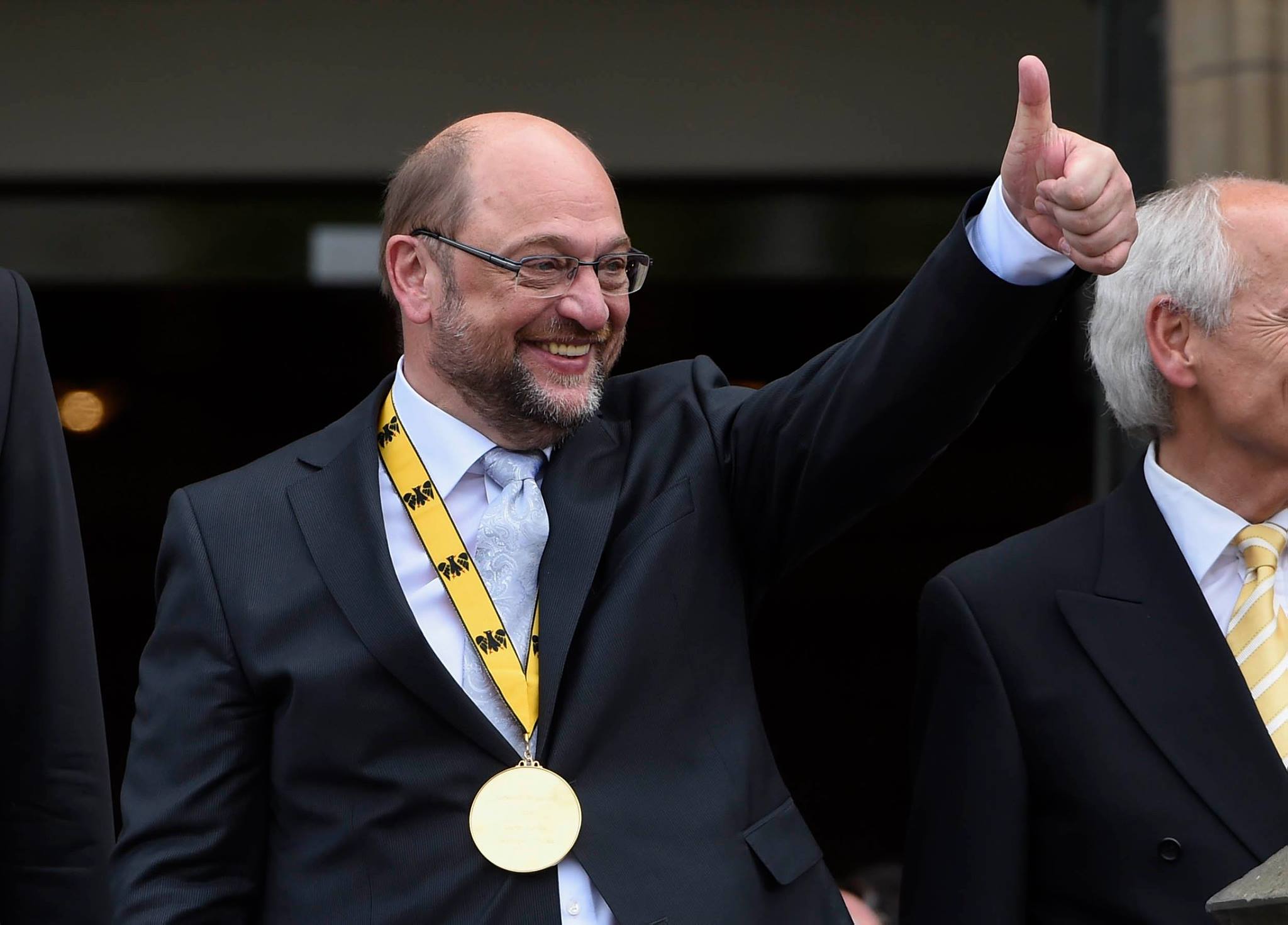
For the past two elections, Germany’s center-left has tried to stymie chancellor Angela Merkel with two jowly, doughy figures compromised by high service in Merkel-led ‘grand coalition’ governments. ![]()
And for the past two elections, Germany’s center-left Sozialdemokratische Partei Deutschlands (SPD, Social Democratic Party) has won a smaller share of the vote than at any other time in postwar German history.
For months, it appeared that the Social Democrats were set to sleepwalk into making the same error in 2017.
With the federal election formally set for September 24, it seemed that the SPD would choose as its candidate for chancellor Sigmar Gabriel, the economy minister who serves as vice chancellor in the current Große Koalition and who has served as the party’s official leader since 2009.
Though polls showed Merkel’s center-right Christlich Demokratische Union (CDU, Christian Democratic Union), in power since 2005, losing some ground to the eurosceptic and anti-immigrant Alternative für Deutschland (AfD, Alternative for Germany), they still maintained a consistent lead of anywhere from 11% to 17% against the Social Democrats. With Gabriel at the helm, the SPD seemed content to lose another election to Merkel, perhaps willing to suffer as the junior partner in her fourth-term governing coalition or otherwise in complete opposition.
So it was a surprise to see Gabriel on Tuesday bow out of competition to lead his party into the 2017 elections and instead endorse Martin Schulz, who stepped down as the president of the European Parliament just weeks ago to return to German politics. Continue reading As Gabriel steps aside, Schulz gives Germany’s SPD best shot in a generation